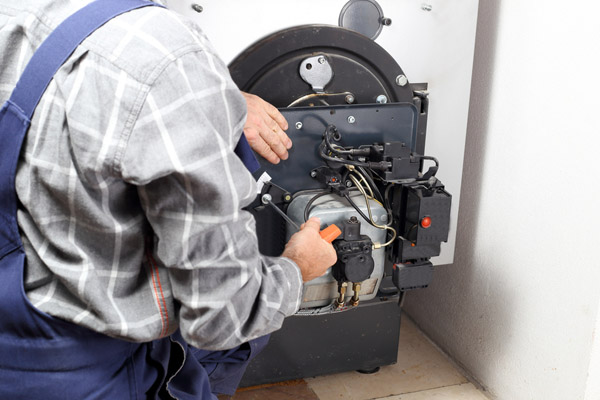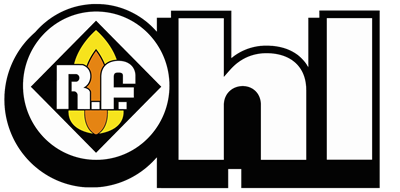Best Ways To Maintain Your Hydronic Heating System

Hydronic heating systems have consistently provided warmth and comfort for homeowners over the years. These systems deliver optimal heat without the cold drafts and indoor contaminants often associated with forced-air HVAC systems that neglect regular air filter replacements. Yet, akin to a car, the longevity and efficiency of a hydronic heating system hinge on regular maintenance and care. Thankfully, with the right guidance, homeowners can actively participate in maintaining their water home heating system effectively. Dive in as we guide you through essential steps to ensure your hydronic hot water system operates at its best.
Optimal Maintenance for Your Hydronic Heating System
Contents
When it comes to ensuring the efficiency and longevity of your hydronic heating system, there are two primary avenues to consider. The first pertains to tasks that necessitate a professional’s specialized knowledge and skills. Meanwhile, the second encompasses actions that homeowners can confidently and easily undertake.
The Importance of Professional Hydronic Heating System Maintenance

Expert HVAC technicians provide invaluable assistance, alleviating homeowners from potential pitfalls. Their extensive training and experience equip them with a discerning perspective, enabling them to evaluate your hydronic heating system meticulously. To guarantee optimal performance and sustain a comfortable environment, it’s prudent for homeowners to schedule an annual check-up with certified professionals.
Consider the boiler tune-up as an example. Such proactive measures act as a shield, thwarting potential issues before they arise. Moreover, they prevent minor concerns from snowballing into significant challenges, a scenario often seen when minute HVAC troubles are brushed aside. By proactively maintaining your radiant heating system, you benefit from financial savings and gain invaluable peace of mind.
Advantages of annual hydronic heating system assessments:
- System Tune-Up: A comprehensive review of the entire system, with adjustments made where needed.
- Expansion Tank: The air charge is evaluated and, if needed, recharged. A thorough inspection ensures air vents remain clear and functional.
- Pressure Relief Valve: This valve is scrutinized for its proper operation, with stagnant water being systematically removed.
- Hydronic Glycol: The fluid’s pH level is checked. If degradation is detected, it signals the need for fluid recharging.
- Drain Faucets & Shut-Off: Faucets are either mended or replaced based on their condition.
- Combustion: The HVAC expert adjusts safety controls, examines for blockages and leaks, and cleans the burner as per recommended standards.
- Circulator: This includes a thorough check of both the circulator and zone valves to confirm they are functioning correctly.
- Wiring: A detailed inspection is conducted across the system to assess the wiring’s continuity and conductivity.
- Valves: Each valve within the system undergoes a meticulous examination to ensure it operates as intended.
While this rundown isn’t all-encompassing, it underscores the pivotal role of annual system assessments. By entrusting HVAC professionals, homeowners can rest easy, confident that every detail is perfectly managed. However, alongside the expertise of these specialists, there are also routine checks and tasks homeowners can perform to uphold their system’s efficiency.
Maintenance Tasks Homeowners Can Do for Your Hydronic Heating System
While professional oversight is invaluable, homeowners can also take hands-on steps to preserve the efficiency and longevity of their hydronic heating systems. It’s essential to note that the tasks vary based on individual comfort levels and knowledge; thus, if you ever find yourself in doubt, it’s always wise to seek guidance from an expert. Here’s a snapshot of proactive measures homeowners can consider for their system’s maintenance:
- Stay Alert: Be proactive and watchful for any anomalies or issues with the system.
- Monthly Overviews: Cultivate a routine of performing a general check on your system at least once a month.
- Inspect the Boiler or Furnace: Pay attention to signs like calcium deposits and rust accumulations. Overlooking the boiler often leads to a majority of system-related concerns.
- Monitor Water Levels: A boiler that runs too low on water cannot effectively manage its heat output. Always ensure the water level aligns with the recommended mark.
- Address Deposits and Buildups: Use a mixture of baking soda and vinegar to clear away calcium and rust. Alternatively, specific specialized cleansers, coupled with a soft scrubbing tool, can be effective.
- Advanced Care: For those who have a deeper understanding of the system, draining the boiler and applying oil to the pump motor can promote better circulation. Always adhere to the manufacturer’s guidelines when performing these tasks.
While this enumeration doesn’t cover every aspect of hydronic heating system care, it offers homeowners a fundamental guideline for proactive maintenance. As homeowners grow more acquainted with their systems, they can expand their knowledge and hands-on involvement.
Getting to Know Your Hydronic Heating System
As homeowners delve deeper into maintaining their hydronic heating systems, they often discover empowering avenues to enhance their longevity and efficiency. Here are some methods through which individuals can expand their understanding and actively contribute to the care of their hot water home heating system:
- Be Observant: One of the best ways to understand your system is to observe its operations keenly. Familiarize yourself with its components, typical sounds, and overall behavior.
- Engage in Conversations: Chances are, you know someone else with a similar heating setup. Engage them in discussions, and you might pick up valuable insights or troubleshooting tips from their experiences.
- Digital Exploration: The internet is a vast reservoir of information. From expert forums to DIY videos, homeowners can find many resources to understand their heating system better.
- Consult the Manual: Most heating systems come with a detailed owner’s manual. This guide can be an invaluable resource to familiarize oneself with the system’s specifics.
- Leverage Professional Insights: During scheduled HVAC inspections, take the opportunity to ask technicians questions. More often than not, they’re eager to impart their wisdom and provide insights that can benefit homeowners.
Knowledge is power, especially when it comes to understanding intricate systems like hydronic heating. As homeowners actively seek and absorb information, their familiarity with their system deepens. This enhanced understanding translates into improved proficiency in its maintenance. And as they hone these skills, not only do they ensure their system’s longevity, but they also realize tangible savings in the upkeep process.
In Conclusion
The upkeep of a hydronic heating system boils down to consistency and regular attention. Integrating monthly checks and annual professional evaluations into your household regimen can make a difference. As homeowners become more adept at this process, they uncover many methods to optimize their systems. The outcomes? Enhanced system performance, heightened home comfort, decreased energy expenditures, and a significant reduction in potential HVAC repair needs.
Contact R.F. Ohl For All Your HVAC Requirements

R.F. Ohl provides high-quality HVAC services in Northeastern Pennsylvania, including the Poconos and the Greater Lehigh Valley Region. Our professionally certified technicians are experts in conducting superior heating and cooling services, including boiler tune-ups, air conditioner repairs, furnace installations, and more. You can trust our qualified techs to use their experience and knowledge to service your HVAC system the way it ought to be.
Our company guarantees quality and highly affordable HVAC services in the region. Our maintenance services can improve your home’s comfort and energy efficiency while lowering your heating expenses. We can suggest the best solutions within your budget if you require an HVAC repair or replacement system. Rest assured, all our work is guaranteed. Give R.F. Ohl a call to book a service appointment and get a free, in-home estimate. Call now!
Click here to contact us today or give us a call at (610) 377-1098 if you have any questions. Click the link to view our service area.
Related Articles: